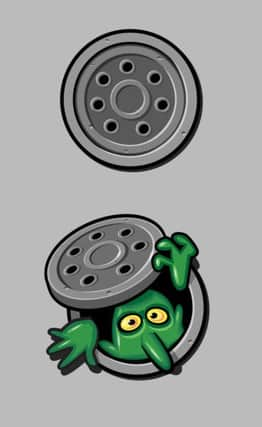LETTER OF THE DAY: Time to fight '˜The Unflushables'!


In Hampshire during the past year alone, we’ve seen 6,353 blockages caused by a build-up of fat and unflushable items in the sewers.
We’ve also removed 2,034 tonnes of wipes, nappies, sanitary items and other bits that shouldn’t be flushed down the toilet from our sewage works in Hampshire – that’s the equivalent weight of more than 160 double-decker buses.
Advertisement
Hide AdAdvertisement
Hide AdA report just published by Water UK has revealed the results from the most in-depth study yet on sewer blockages.
Alarmingly, it’s shown that almost all material found in them is made up of wipes.
We know that sewer blockages are a real problem across our region so that’s why, earlier this year, Southern Water and the Consumer Council for Water joined forces in order to fight ‘The Unflushables’.
The campaign helps people understand how to properly dispose of fat, oil, grease and unflushable items like wipes, tampons, nappies and condoms.
Advertisement
Hide AdAdvertisement
Hide AdIt also aims to highlight the impact a sewage flood in people’s houses can have – and provide some advice on how people can stop it happening to them.
The most shocking thing about the 23,000 blockages which occur every year on Southern Water’s sewer network is that over two-thirds of them could be prevented by knowing how to properly dispose of leftover cooking fat and unflushables, rather than putting them down the toilet or sink.
Washing up liquid and hot water does not completely wash cooking fat from your pipes, and the only things you should flush are the 3Ps – pee, poo and paper.
For more information, hints and tips, please check out ‘The Unflushables’ campaign at: southernwater.co.uk/the-unflushables
Tim Bagnall
Wastewater manager, Southern Water